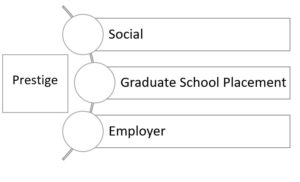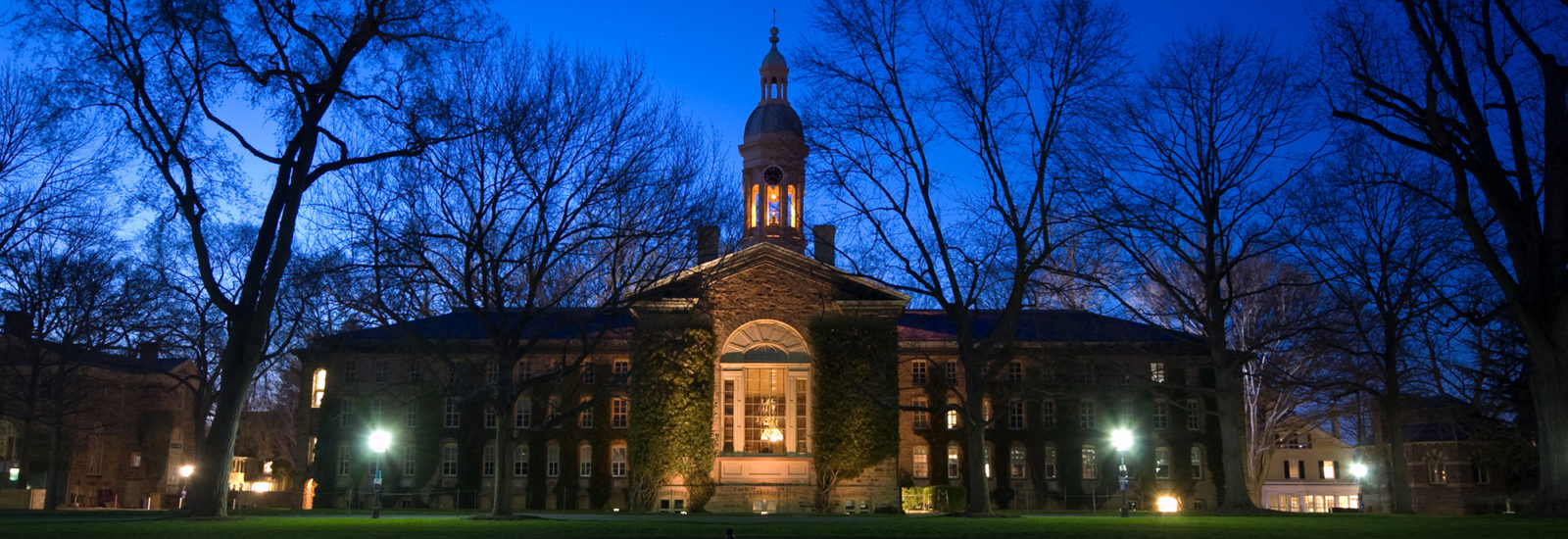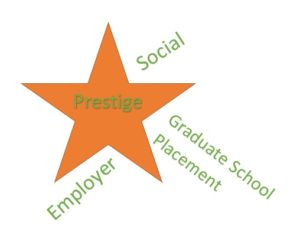 Students applying to colleges in the US know Harvard but they have never heard of Haverford. What they don’t know is that they stand a better chance of admission to many US colleges that can help launch them into top MBA, law and medical schools. Defined simply as standing or evaluation in the eyes of other people, graduates today have to consider what kind of credit they are searching for. Is it “cocktail party” or social prestige, graduate school placement prestige, or prestige with employers who wish to hire you? Given new challenges of admission, one needs to decide what accolades are of top priority. All things considered, choosing wisely may produce a perfect fit for student and pocket alike.
Students applying to colleges in the US know Harvard but they have never heard of Haverford. What they don’t know is that they stand a better chance of admission to many US colleges that can help launch them into top MBA, law and medical schools. Defined simply as standing or evaluation in the eyes of other people, graduates today have to consider what kind of credit they are searching for. Is it “cocktail party” or social prestige, graduate school placement prestige, or prestige with employers who wish to hire you? Given new challenges of admission, one needs to decide what accolades are of top priority. All things considered, choosing wisely may produce a perfect fit for student and pocket alike.
Social Prestige
Ever-powerful social prestige can be hard to combat. Rankings such as US News and Reports consistently use a similar grouping of private national universities in the top 50. Clearly, there are reasons the small class sizes, low acceptance rates, and impressive faculties of the Ivies and top schools like Duke and Berkeley draw a strong applicant pool. The caliber of education received at these schools should not be discredited, but it is important to understand a certain social conscience does not mean another smaller school cannot create equally impressive results.
A study ranking universities by general public opinion gave 75% credit to student opinion polls, professor opinion, and references to the school in the media (in a non-athletic context)[1]. The rankings produce a list so similar to major polls, clearly social ideas of a school play into its reputation. Since 2008, there has been a 10% decline in starting salaries for new students, without considering inflation.[2] Of course, this is only considering the students that actually got a job. Of the members of the class of 2010, only 56% secured a job by graduation, a huge shift from the 90% in 2007. About half of these graduates stated their first job did not require a college degree.[3] As unemployment rates trickle down, the less academic prestige you have the worse off you are.
Graduate School Placement Prestige
Suddenly, a school’s value may be defined more by its ability to create graduate students or helping to pick a major that leads to a stable job. Assessing a study on colleges producing the highest percentage of doctoral students, institutions such as Harvey Mudd College and Carleton College are in the top 10, above every Ivy League school. Others in the top fifty include Kalamazoo, St. John’s, Occidental, and Mt. Holyoke Colleges.[4] Another study on feeder schools presents Morehouse College and New College of Florida in the top 50, above top military academies and many private universities. An honors school in the Florida state school system, New College’s small school setting allows for very personalized evaluations, which helps students do the type of research as undergrads that attracts the attention of prestigious graduate schools.
Smaller and more locally focused, there can be resources and options available to top students at these regional schools. Additionally, these institutions are often a way to save money while preparing to move on to higher degrees. Saving money is important, given a 10% pay-cut. Current undergraduate student loan debt has a median of $20,000. Many will only take on more, with 60% of students in the last five graduating classes stating they will need additional formal education to be successful.[5]
Find prestige by searching for a school that has a specialty within your interests. Whether that is environmental studies, journalism, or teaching, often the best schools for these passions are not simply one of the top known schools. First, consider a major that ends in a job. Currently the top ten highest paying majors are in the engineering, marketing, and finance world. Some of the best marketing research schools include Michigan State, the University of Georgia, and the University of Wisconsin.[6] If you are considering business, the University of Texas and Indiana University rank in the top ten.
Employer Prestige
A third type of prestige is employer prestige. At the end of the day, which schools are handing out the best graduate pay checks? Often, this may have much more to do with networking or strong alumni connections, not just social consciousness. According to the website, Pay Scale, and its annual rankings showing what recent graduates make, Manhattan College, SUNY Maritime, Colorado School of Mines, Babson College, and Santa Clara University all rank in the top 25 given both starting median salary and mid-career median salary of graduates.[7] Knowing you want to live in a certain city or region long-term may be crucial in choosing a school. Finding an alumni network nearby and a specified job industry can mean high dividends later.
Overall, the way other people view a school when you state where you attend college has nothing to do with how that institution sets you up for the future. “Cocktail party” prestige is not enough to ensure a good paying job after college and certainly not a high rate of admission to top flight graduate programs. My advice: work hard to find an area of focus that may lead you down a unique path, searching for graduate school placement, a job, or social prestige. In the end, if you find a path that is more specific to your needs, it may prove to be the best cocktail party story of all!
________________________________
[2] http://www.heldrich.rutgers.edu/sites/default/files/content/Work_Trends_May_2011.pdf
[3] http://www.nytimes.com/2011/05/19/business/economy/19grads.html?_r=2
[4] http://web.centre.edu/ir/student/OverallBaccOrigins.pdf
[5] http://www.nytimes.com/2011/05/19/business/economy/19grads.html?_r=2
[6] http://education-portal.com/articles/Top_Schools_for_Marketing_Research.html
[7] http://www.payscale.com/best-colleges/top-us-colleges-graduate-salary-statistics.asp


